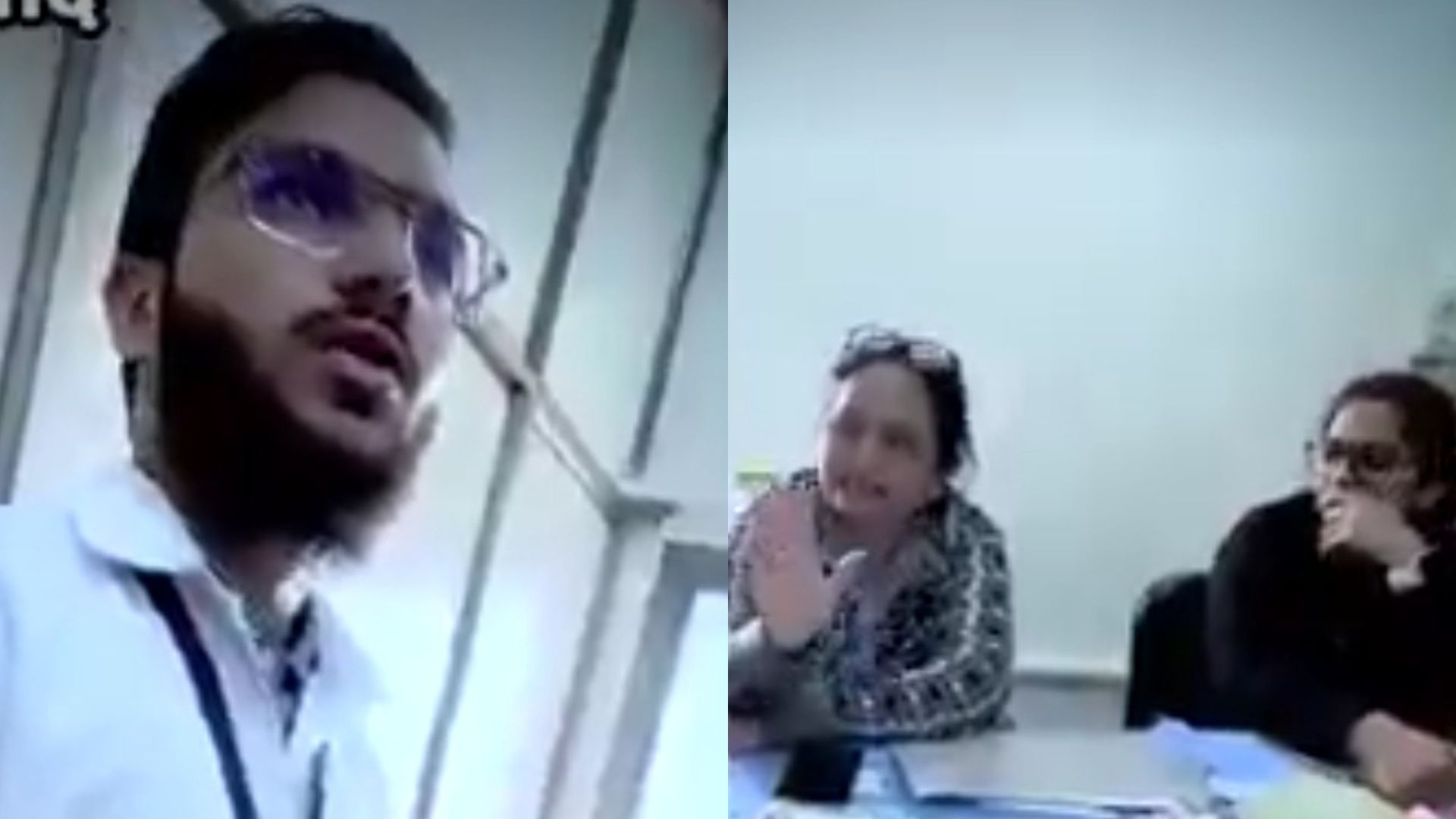In a deeply troubling incident in Ahmedabad, Gujarat, nursing student Hafiz Abu Bakr was denied permission to sit for his Gujarat University GNM nursing examination at LG Hospital due to his beard. The examiner, Sarayu Raj Purohith, allegedly instructed Abu Bakr to remove his beard before he could begin the examination.
The video of the incident may be viewed here:
As provided by a report of the Observer Post, Abu Bakr claimed that he was stopped outside the examination hall and told to shave off his beard before being allowed to proceed. A video of the incident, which went viral on social media, shows the examiner stating, “If a student maintains a beard, I believe we should conduct an examination or ask them a question.” This discriminatory statement raises serious concerns about the lack of professionalism and the infringement on personal rights in educational institutions.
There is no official rule that mandates the removal of a beard for examinations, yet the examiner’s actions suggest a deeply ingrained bias against religious expression, particularly against Muslim students. As per the report, the individual who filmed the incident highlighted the absurdity of the demand, stating, “There are no rules as such to ask someone to shave their beard in a classroom; it is only permitted to ask if you are in a position to offer a job or in a job interview.” Abu Bakr also recounted an additional humiliating interaction, where the examiner questioned whether he had completed the Hajj pilgrimage. Upon Abu Bakr’s response that he had performed Umrah, the examiner reportedly accused him of lying and insisted that he shave his beard completely, implying that his religious identity was subject to interrogation.
In an attempt to defend her actions, the examiner claimed that no discrimination based on religion took place and that examinations are conducted fairly for all students. However, the absurdity of the demand—especially considering the complete lack of any formal rule requiring a shaved face—demonstrates a deeper problem of cultural and religious intolerance masquerading as routine procedure. The individual who recorded the video rightly pointed out that simply conducting exams for everyone does not give anyone the right to impose such personal and religious demands on a student.
The incident has drawn condemnation from various quarters, including Shazad Khan Patan, an AMC leader, who expressed his concern over the growing religious intolerance in Gujarat. He stated, “I learned about the incident from the media. A Muslim student’s exam had been denied because he had a beard. In this nation, fanaticism has reached such a high level that students have to deal with it. It’s a pretty embarrassing situation.” Patan further accused the state of Gujarat of becoming a hub for religious extremism, where such discriminatory practices are becoming increasingly normalised. He emphasised that the Indian Constitution guarantees the right to religious freedom, including the right to express one’s faith through visible markers such as a beard or a hijab.
This incident is a glaring example of the growing religious intolerance in India, where actions rooted in personal beliefs and cultural biases are increasingly encroaching upon the rights of individuals. What is even more disturbing is that such discriminatory actions are often justified by authorities as a part of regular procedures, further normalizing the marginalization of religious minorities. In a secular country like India, where the Constitution protects the rights of individuals to practice their religion freely, incidents like these are not just shameful—they represent a dangerous erosion of the inclusive, pluralistic values that the nation was built upon. The incident serves as a stark reminder of the ongoing struggles that religious minorities, particularly Muslims, face in India today, and the urgent need to challenge such discriminatory practices at every level of society.
Related:
CJP files preventive complaint to safeguard Shirdi’s religious harmony

